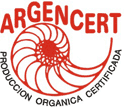World Food Day 2005
International Federation of Organic Agriculture Movements (IFOAM) Highlights Its Role In Global Intercultural Dialogue
At the occasion of World Food Day 2005, The International Federation of Organic Agriculture Movements (IFOAM) highlights its role in recognizing our common agricultural heritage and creating a global platform for intercultural dialogue. IFOAM and the international organic movement worldwide are demonstrating the relevance of organic agriculture in promoting and enhancing biodiversity and food security and creating an ecologically, socially and economically sound future for all.
In its World Food Day press release, the FAO recognizes that "Poor farmers cannot compete in an international marketplace if their goods are shut out of richer countries, while subsidized farm
products from industrialized countries are sold at or even below production cost in poor countries." This recognition by the FAO that export subsidies and the dumping of agricultural products
on poor countries create an unfair trading system is an important step. However, commitments to partially eliminate such economically and culturally devastating practices by 2010 only provides for
an additional several years of suffering and destruction of cultural traditions in poor countries, and virtually ensures that the 852 million people around the world who are hungry will remain
hungry, and also makes the stated World Food Summit goal of reducing this number to 426 million hungry by 2015 practically impossible.
IFOAM and the organic movements worldwide are making tangible and systematic efforts towards achieving its goal of the worldwide adoption of ecologically, socially and economically sound systems that are based on the Principles of Organic Agriculture (http://www.ifoam.org/organic_facts/principles/index.html). As of the beginning of 2005, 558,449 farms in 108 countries, amounting to more than 26 million hectares and a market value of over 25 billion Euros, are currently certified. Many millions of people are involved in the production, marketing, processing and distribution of organic products, generating immense income for a great number of people while simultaneously enhancing biodiversity and protecting the environment for future generations.
Organic agriculture is a holistic system that promotes and enhances biodiversity, biological cycles, and soil biological activity. Certified organic products are those which have been produced, stored, processed, handled and marketed in accordance with precise technical specifications (standards) and certified as organic by a certification body. A recent 22-year trial study by Cornell University proved that organic farming produces the same corn and soybean yields as conventional farms, but consumes less energy and utilizes no pesticides (http://www.news.cornell.edu/stories/July05/organic.farm.vs.other.ssl.html). The study also concluded that the soil on the organic farms steadily improved in organic matter, moisture, microbial activity and other soil quality indicators, that soil carbon in the organic systems increased by 15 to 28 percent, the equivalent of taking about 3,500 pounds of carbon dioxide per hectare out of the air and that organic farming reduced local and regional groundwater pollution by not applying agricultural chemicals
With over 800 million hungry people on this planet, it must be noted that the major constraints to food security are economic, political and social in nature. Food security requires that a society
not be based on inequity and discrimination and that international trade rules not impede efforts to develop the local food sector. Beyond these requirements, major changes must be made in
policies, institutions, research and development to realize organic agriculture’s full benefit for sustainable food security. Organic agriculture contributes to food security by increasing yields
in low-input areas, conserving biodiversity and nature resources on the farm and in the surrounding areas, increasing income and reducing costs, producing safe and varied food and providing for
long term sustainability. For more information on the role of organic agriculture in creating and enhancing food security, visit http://www.ifoam.org/organic_facts/food/index.html.
At the 15th IFOAM Organic World Congress “Shaping Sustainable Systems” in Adelaide, Australia from September 20th to 23rd 2005, the more than 1000 delegates from 72 countries issued the Adelaide
Declaration, which calls upon governments worldwide to actively endorse and practically support organic agriculture, and to allocate budgetary funds for investment into organic agriculture, at the
minimum proportionate to the organic sector’s production in their countries, and to internalize social and environmental costs in the prices of agricultural products and remunerate organic farmers
for ecosystem services they provide. It also calls on international agribusiness to listen to the consumer and to embrace more organic principles, and thus develop truly sustainable agricultural
and food systems. For the complete text of the Adelaide Declaration, please visit http://www.ifoam.org/press/press/Organic_World_Congress_Results.html
On this World Food Day 2005, IFOAM recalls the devastating impacts of Trade Related Intellectual Property Rights (TRIPS) and patents on life on world agriculture. They undermine the protection of indigenous knowledge and agricultural traditions. Patents on seeds and genetic resources for food and agriculture threaten sustainable farming practices, farmers’ livelihoods and food security. Farmers using patented seeds are deprived of their right to use, save, plant and sell their seeds. In this regard, IFOAM calls attention to its support for The Treaty Initiative to Share the Genetic Commons, which proclaims that “the intrinsic value of the Earth’s gene pool, in all of its biological forms and manifestations, precedes its utility and commercial value, and therefore must be respected and safeguarded by all political, commercial and social institutions.” The full text of the Treaty Initiative can be found on the Foundation for Economic Trends website at http://www.foet.org/Treaty.htm
The FAO’s International Treaty on Plant Genetic ambiguously allows for genetic resources to be patented if changed from the “form received” from the multilateral system, and subordinates Farmers’
Rights to national intellectual property rules. On November 5th 2001, 189 organizations from countries all over the world highlighted the social, environmental and economic problems caused by the
implementation of TRIPS (http://www.twnside.org.sg/title/joint5.htm). IFOAM reemphasizes the call on the FAO to restrict or ban intellectual
property rights on plant genetic resources for food and agriculture within the multilateral system, in the interests of long-term food security and to prevent biopiracy.
On this World Food Day 2005, IFOAM also recalls its opposition to genetic engineering in agriculture. It represents an unprecedented danger for the entire biosphere and
poses significant economic and environmental risks for organic producers in particular. IFOAM believes that genetic engineering in agriculture causes, or may cause:
- Negative and irreversible environmental impacts
- Release of organisms which have never before existed in nature and which cannot be recalled
- Pollution of the gene-pool of cultivated crops, micro-organisms and animals
- Denial of free choice, both for farmers and consumers
- Violation of farmers' fundamental property rights and endangerment of their economic independence
- Practices which are incompatible with the Principles of Organic Agriculture
- Unacceptable threats to human health
”Genetic engineering in agriculture ignores the contribution of cultures to world agriculture. In concert with powerful political actors serving their own selfish interests, those companies
producing genetically modified organisms (GMOs) have jettisoned the intercultural dialogue and widespread consumer opposition to GMOs for their own profit” stated Angela B. Caudle, IFOAM Executive
Director. “GMOs have been a disaster from the very beginning. From the StarLink fiasco, where a GMO not approved for human consumption widely contaminated and still lingers in the food supply, to
the contamination of fields with pharmaceutical corn from Prodigene, the uncontrollable and dire threat of GMOs for the world food supply has been clearly demonstrated.”
IFOAM President Gerald A. Herrmann concludes “Organic agriculture is an agricultural system that cherishes and is founded upon intercultural dialogue. For the past 33 years, IFOAM has been bringing together people and organizations from all over the world to create a sustainable future for all. We are unified that the solution in the agricultural context is organic agriculture. We call on global civil society to be united with IFOAM in recognizing organic agriculture as the one systematic and sustainable agricultural system.”
IFOAM Press Release, Responsible: Angela B. Caudle, Contact: Neil Sorensen
Head Office Contact
Charles-de-Gaulle-Str. 5
53113 Bonn, Germany
Tel: +49-228-92650-10
Fax: +49-228-92650-99
Email: headoffice@ifoam.org
http://www.ifoam.org
















